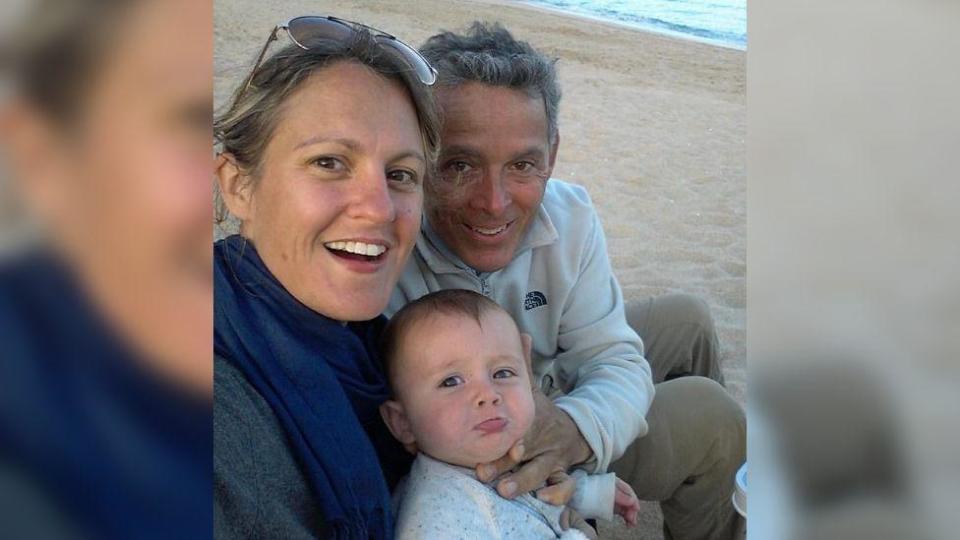New family immigration visa rules 'penalise couples'

There are fears that more people will be separated by the introduction of a minimum salary level for those wanting UK family visas.
Families living in the UK and abroad have raised concerns about what new rules will mean for them as they try to reunite with foreign spouses.
In December, the Home Office, which says migration to the UK is too high, announced a package of measures to reduce net migration, following a spike in arrival numbers.
As of 11 April this year, anyone applying for a visa to bring a loved one from overseas must earn at least £29,000 per year.
A family visa is required for a British citizen or settled resident wanting to bring a foreign partner or spouse, and potentially children, to live in the UK together.
The minimum income required to sponsor a foreign spouse coming to the UK via the Family Visa scheme has now increased from £18,600 to £29,000.
The Government plans to increase this further, in stages, to £38,700 by next spring.
The minimum income requirement applies to the spouse already living in the UK.

In 2020, the UK was placed second from bottom among 56 countries for ease of family reunion, ranking only above Denmark, according to the Migrant Integration Policy Index.
Caroline Coombs, who lives in Bristol, co-founded Reunite Families UK - a non-profit organisation supporting families navigating the visa process.
The group started on Facebook in 2017 and has grown to almost 4,500 members.
Ms Coombs' husband, who is from Ecuador, faced being deported to his home country shortly after the couple - already married at the time - welcomed their first child.
Eight years on, Caroline's husband Carlos is still in the process of gaining indefinite leave to remain, which would secure his future in the UK.

Another family struggling to come to terms with the new rules are Gary Pepperd and "the love of [his] life", Shayenne.
Mr Pepperd was living in Bristol when he met Shayenne. She is Brazilian and was living in Brazil when they connected through social media.
"After a while, we started developing feelings until it got to a point where we wanted to be together," said Mr Pepperd.
Shayenne came to the UK on a visitor visa and the couple's relationship flourished. They got married in December 2017.
The pair had planned to live together in the city, but the option to apply for a family visa wasn't available to them, as Mr Pepperd earned below the previous minimum income requirement of £18,600.
As a result, Mr Pepperd said he decided to move to Brazil so the couple could be together.
"I still have a house in Bristol that I would love to live in with my wife," he said.
"But the [visa] application process is very expensive and it would mean being separated for a long time.
"I would need to leave my wife, find a job there, collect six months of payslips before I'd be allowed to apply and potentially wait another six months to get an answer.
"Now, it just got even harder," he added.
Migration 'too high'
As highlighted in a recent BBC Panorama episode "Immigration: the UK's Record Rise", last year, the Government issued 1.44 million visas. Only around 5.6% of those were family-related.
In response, a Home Office spokesperson said in a statement: "The current levels of migration to the UK are far too high.
"That is why the government announced a plan to cut the number of migrants coming to the UK by 300,000 a year – the largest reduction ever.
“By tethering the minimum income requirement to the general salary threshold for skilled workers, it ensures migration policy is supportive of the wider ambition for the UK to be a high-wage, high-productivity, high-skill economy.”

